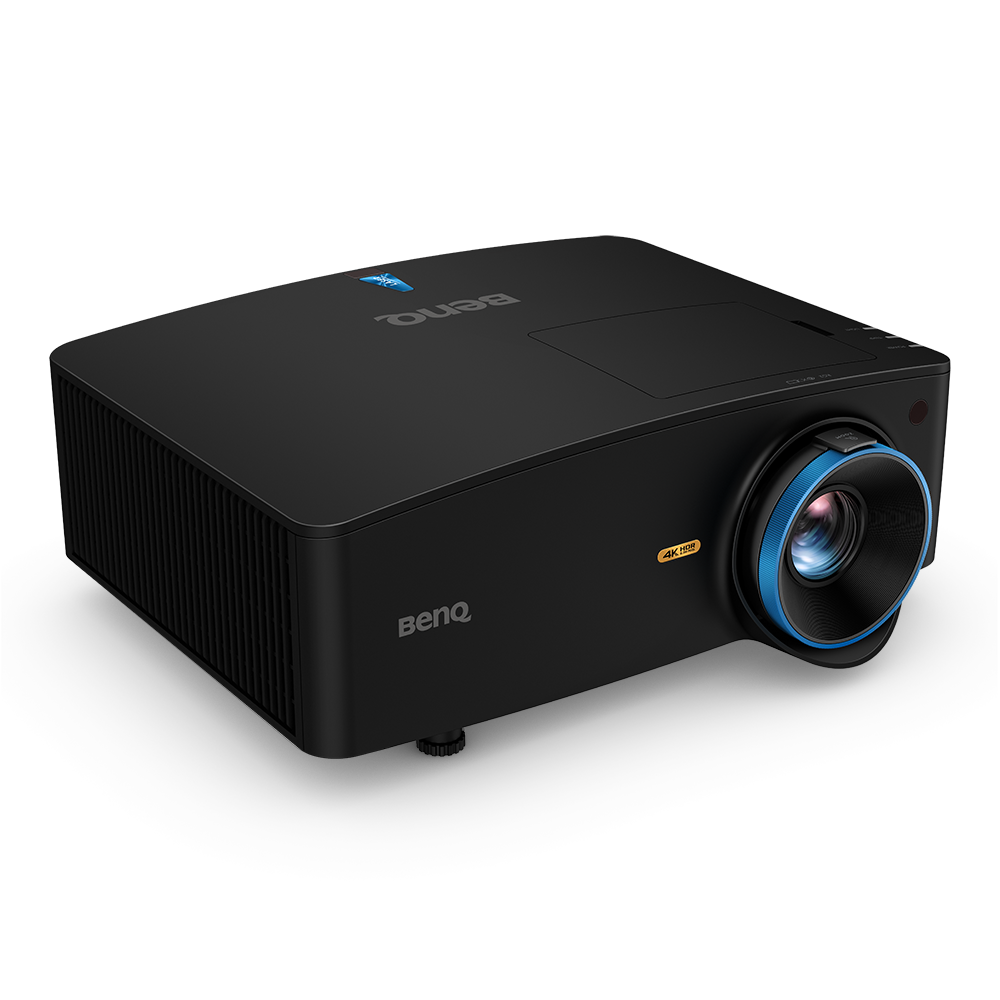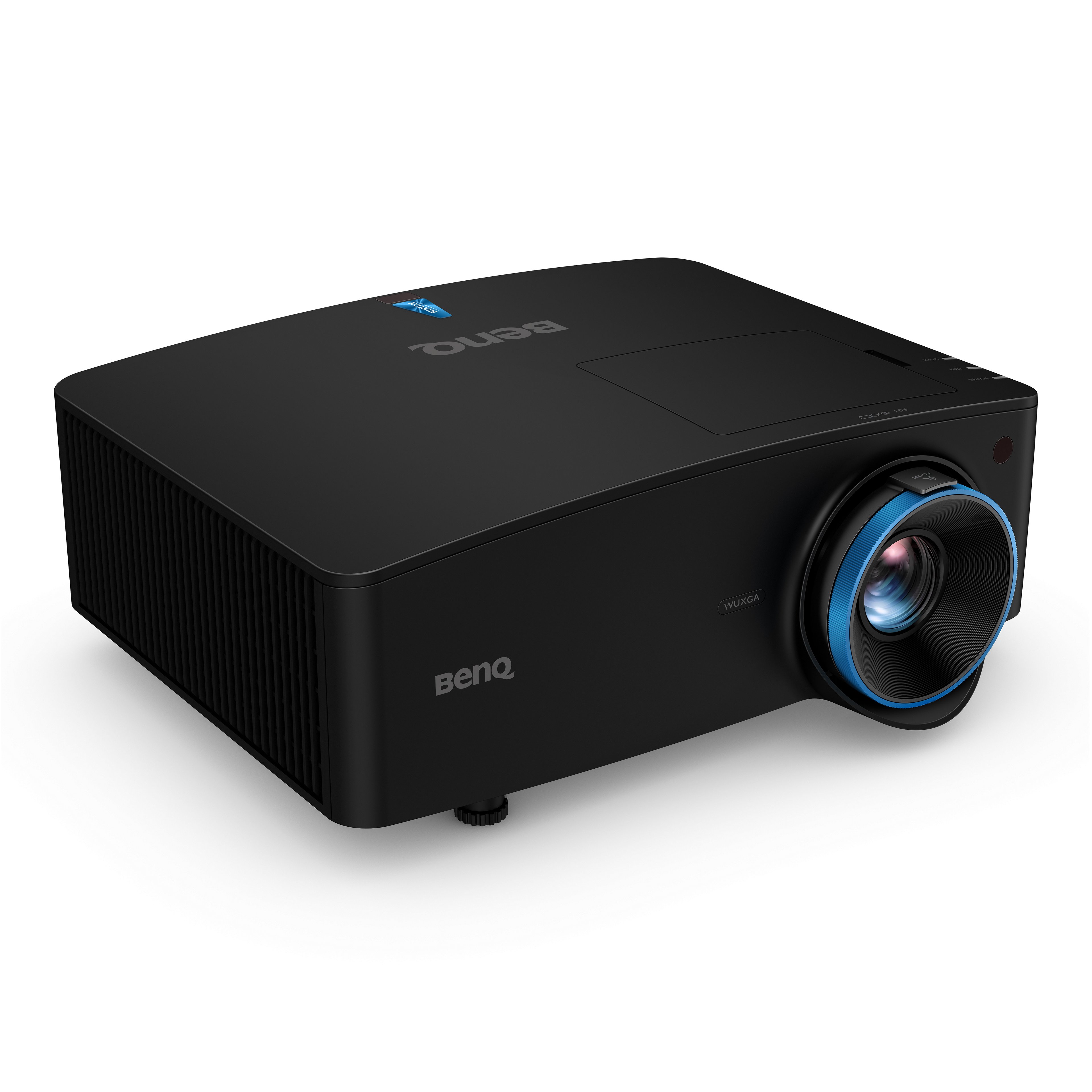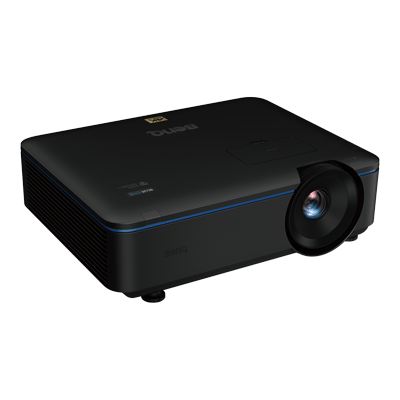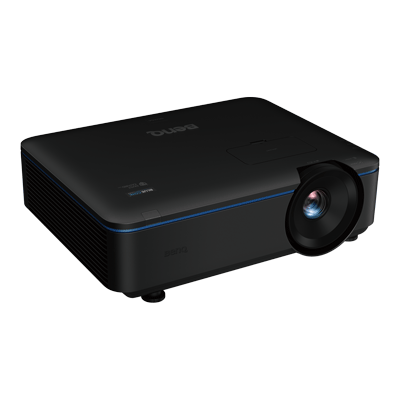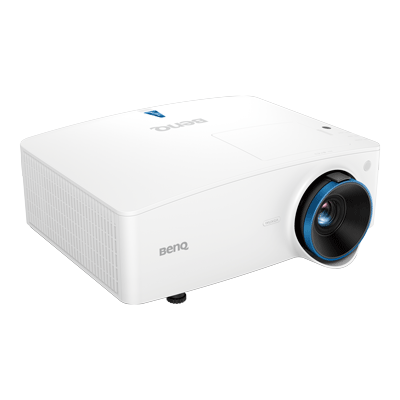How To Pick The Right Projector for Your Golf Simulator Setup
- BenQ
- 2021-05-17
In 2020, the market for golf simulators exploded as the newest cameras and projectors enabled people stuck in their homes to easily convert bedrooms, basements, and garages into St. Andrews and Augusta National. Now BenQ is developing projectors that are designed for golf simulators – which are used by professionals and amateurs around the world. With affordable models now available using the latest laser light technology, what should you be looking for when evaluating the best projector for your simulation space? Here are four key factors to consider:
WUXGA vs. 4K UHD Resolution
Traditional projector lamps vs. laser engines
Sealed Engine Design vs. Open Design with Paper Filters
Color Accuracy specifications
Best projector models for golf simulators
BenQ is one of the largest projector brands in the world with over 75 different projector models to choose from. So while it can be a bit overwhelming to find the right one for your setup, we will look at some of the most common setups – and what projector model is best suited for your playing area and budget. Here are four models that offer a good starting point for your journey.
BenQ TH761ST
BenQ LU710
BenQ LK953ST
Here are the key areas you may want to consider when selecting the right projector for your setup:
Consideration #1 – WUXGA or 4K resolution
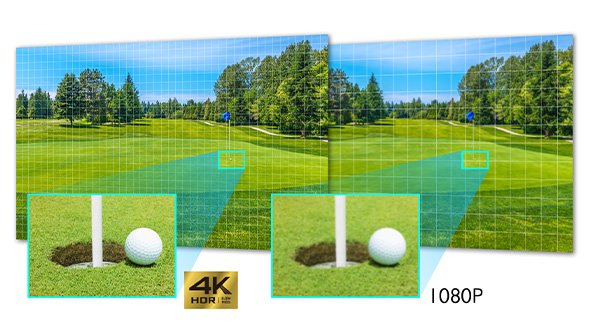
Projectors powering golf simulators need to be bright enough to the BenQ and to display their images on a large impact screen – typically 8 to 16 feet wide. The larger your screen – the more important resolution is for you to see the details. This is especially important on 4K-enabled Foresight, TruGolf, and other simulators that can display small details like the slope of the fairway. For smaller golf simulation screens a lamp-powered XGA or 1080p resolution projectors are inexpensive and can be mounted on the floor. But for midrange and higher-end systems with larger impact screens, WUXGA is often used since has both high resolution with 2.3 million pixels – and also has a 16:10 aspect ratio that will enable the image to be taller (and closer to the floor) than a regular 1080p projector. But many players who are creating a dedicated playing space are looking at the latest BenQ LK953ST model that offers true 4K UHD resolution with a whopping 8.3 million pixels. This projector can enable you to see all of the minute detail on the course generated from your 4K simulator software. On a 12 foot wide or larger impact screen, the difference between 2.3 and 8.3 million pixels is amazing. One other benefit of the 4K is that it will enable your impact screen to double as an amazing home theater for movies or watching the Masters in true 4K resolution.
Consideration #2 – Traditional lamp or laser light source
For a smaller impact screen – the low cost of a lamp projector is attractive. The BenQ TH671ST is a 3000-lumen short throw 1080p projector and with its exclusive SmartEco mode has a lamp is rated up to 15,000 hours. But bigger impact screens need a brighter projector – and if you need 4000 lumens or more, the higher initial cost of the laser projector is often a better choice. Why? Higher brightness lamps tend to have shorter lamp life and are expensive to replace. Plus – many manufacturers are phasing them out. In 2020, nearly 75% of high brightness projectors used lasers. For golf simulators, there are several advantages that BenQ laser projectors have over the traditional 5000-lumen lamp projectors. Here are a few to keep in mind:
20,000-hour lamp life – assuming a street price of $350 for 5000-lumen replacement lamps, the BenQ laser can save as much as $1400 over the life of the projector
Instant On & Off – A laser projector is ready to go in a couple of seconds after you turn it on
Higher color accuracy – lasers provide higher color accuracy - more on that below
Stays Brighter Longer – high brightness lamps start losing their brightness after a few hundred hours – and once they reach 50% brightness – need replacing. A laser projector loses brightness at a much slower rate – helping your simulator look bright for years.
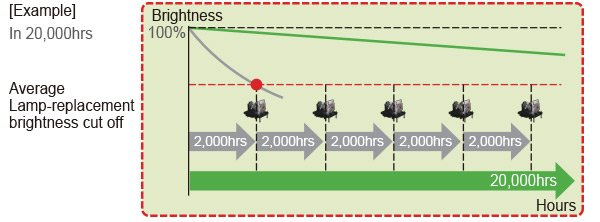
Today, a BenQ LU710 WUXGA 4000 lumen laser projector costs about the same as a traditional higher brightness lamp projector – and can save you the hassle of buying and installing replacement lamps
Consideration #3 – Maintenance free vs. cleaning filters
Most people using a simulator want to focus on the course – not maintaining the projector. Most projectors using LCD panels from brands like Panasonic and Epson lamps have filters that have to be kept clean to keep the lamp cool. The problem – if the “Clean filter” light comes on during your game of “Wolf” – all play stops until a new filter is put in – or the existing filter is vacuumed or washed.
By contrast, the projectors BenQ has designed for golf simulators use a sealed laser engine – which doesn’t require a filter. Because it uses advanced DLP technology, the projector can be cooled using the same technology used in Macbooks and other types of displays. BenQ tests these models using an industry-standard IP5X certification to ensure that the projector will operate even when dusty.
Consideration #4 – Color accuracy
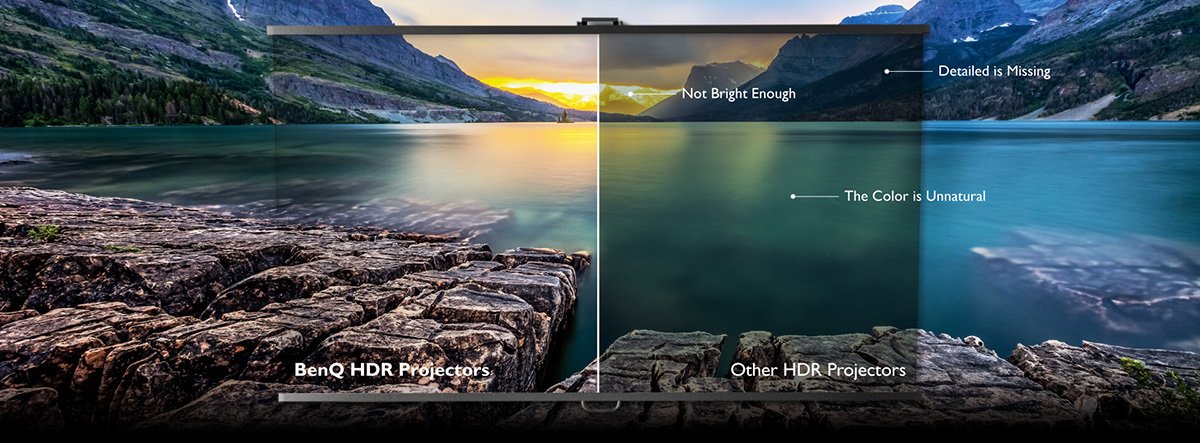
If you want the same bold and dynamic colors on your projector screen as on your monitor, then you need to look at the color accuracy of the projector. This ensures that your fairways look realistic, and not like a Nintendo game.
For a 2000 lumen home theater projector, nearly any model is going to have accurate color. But with higher brightness projectors – especially 5000 lumens or brighter – the color accuracy can vary dramatically from one model to another. The best way to ensure a good picture is to look at the color accuracy measurements of your projector. For example, the 5500 lumen BenQ LU935ST WUXGA laser projector provides the exact specification (92%) of the color accuracy using industry-standard specifications such as Rec.709. This makes it more immersive when playing a round – but also doubles as a fantastic looking home theater projector to watch a live tournament or re-watch The Greatest Game Ever Played.
But how much does A good golf simulator projector cost?
While you can find many lamp-based models with the right throw ratio for under $1000, the better golf simulation projectors cost between $1500 and $5000. Compared to the cost of the camera and impact screen, this is one of the less expensive components – but can make a big difference in how your simulator looks, plays – and how much the room is used for watching Tin Cup, live or recorded tournaments, and streaming golf content in 4K resolution. Here is a breakdown of the cost and features of the four models mentioned in this article that have the right throw ratios for golf simulation placement.
|
BenQ |
||
Mounting Location | BenQ Ceiling / Cart | Ceiling Short Throw | Ceiling Short Throw |
Brightness | BenQ 5000 Lumen | 5500 Lumen | 5100 Lumen |
Resolution | BenQ WUXGA | WUXGA | 4K UHD |
# of Pixels | BenQ 2.4 Million | 2.4 Million | 8.3 Million |
Lamp Type | BenQ Laser | Laser | Laser |
Lamp Life | BenQ 20,000 hours | 20,000 hours | 20,000 hours |
Est. Street Price | BenQ US$2399 | US$3999 | US$4499 |
BenQ has trained staffs to help you find the perfect golf simulator projector – within your room size and budget.
You may also like
-
Trends & Knowledge
Why a 4K laser golf simulator projector is the best choice?
Learn why a 4K projector is the only way to properly simulate your favorite course. From the way the flag is blowing to how the green lies, every detail matters.
2021.05.17 -
Trends & Knowledge
Build a home golf simulator with the perfect projector
This article guides you through what you need to know when building your own golf simulator, including some tips about how to choose the right projector.
2021.04.20 -
Trends & Knowledge
What is the best place to mount a golf simulator projector?
A guide to help understand where and why projectors are placed in front or overhead in a Golf Simulator setup. BenQ golf simulator projectors LU710, LK953ST and LK990 offer you the impact screen that is mounted in a safe place but create an immersive experience for indoor golf.
2021.07.02 -
Trends & Knowledge
What is a Laser Projector?
2020.04.18 -
Trends & Knowledge
How the right projector can perfect your Full Swing golf simulator
A guide to choosing the best projector for your Full Swing pro-series SimTheater and feel like you are playing Torrey Pines – or play 13 sports including football, soccer, baseball, and even zombie dodgeball with ultimate realism.
2022.01.11
